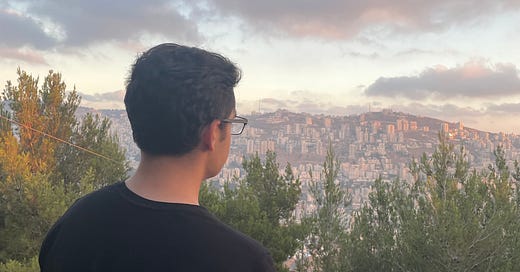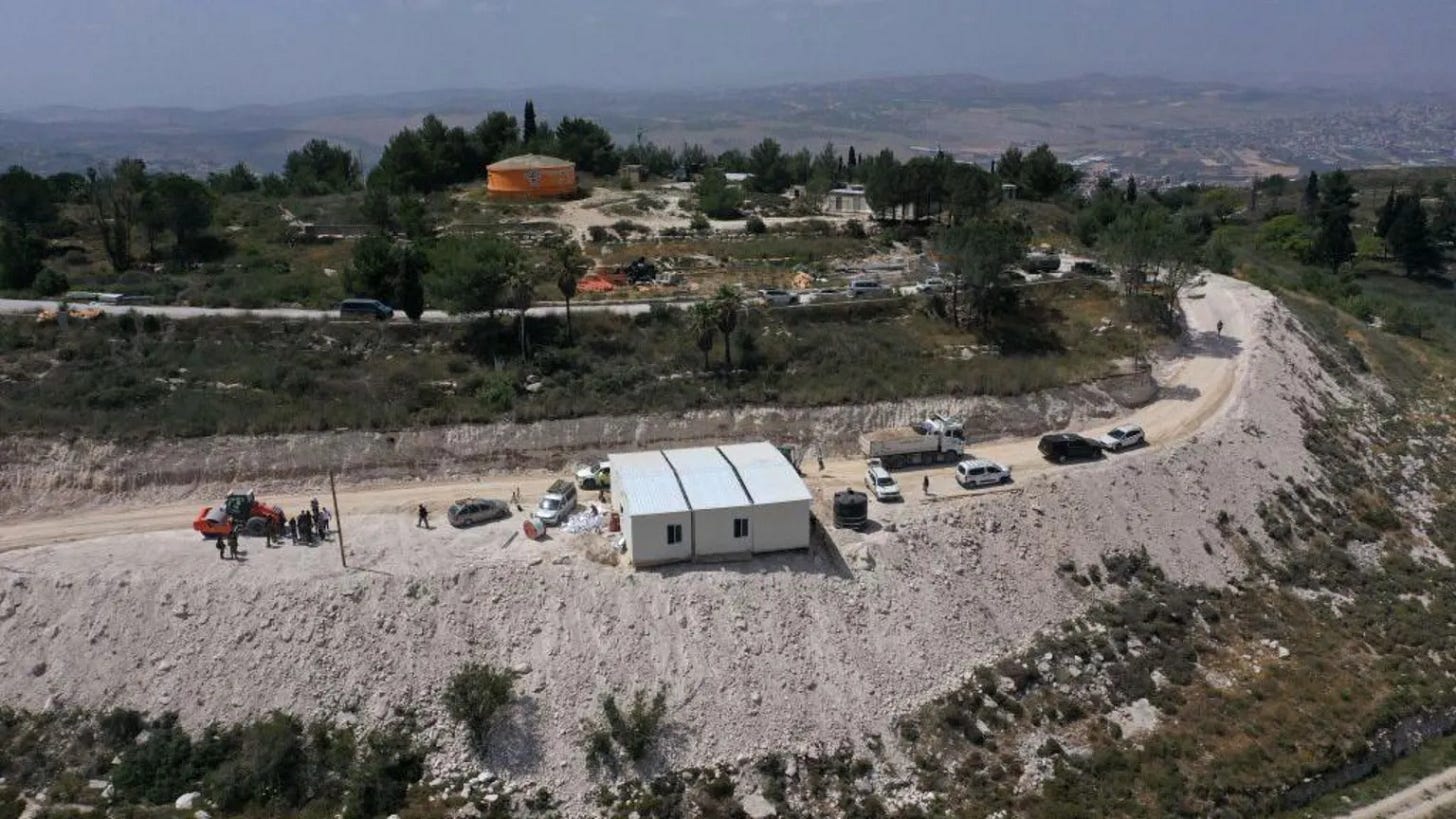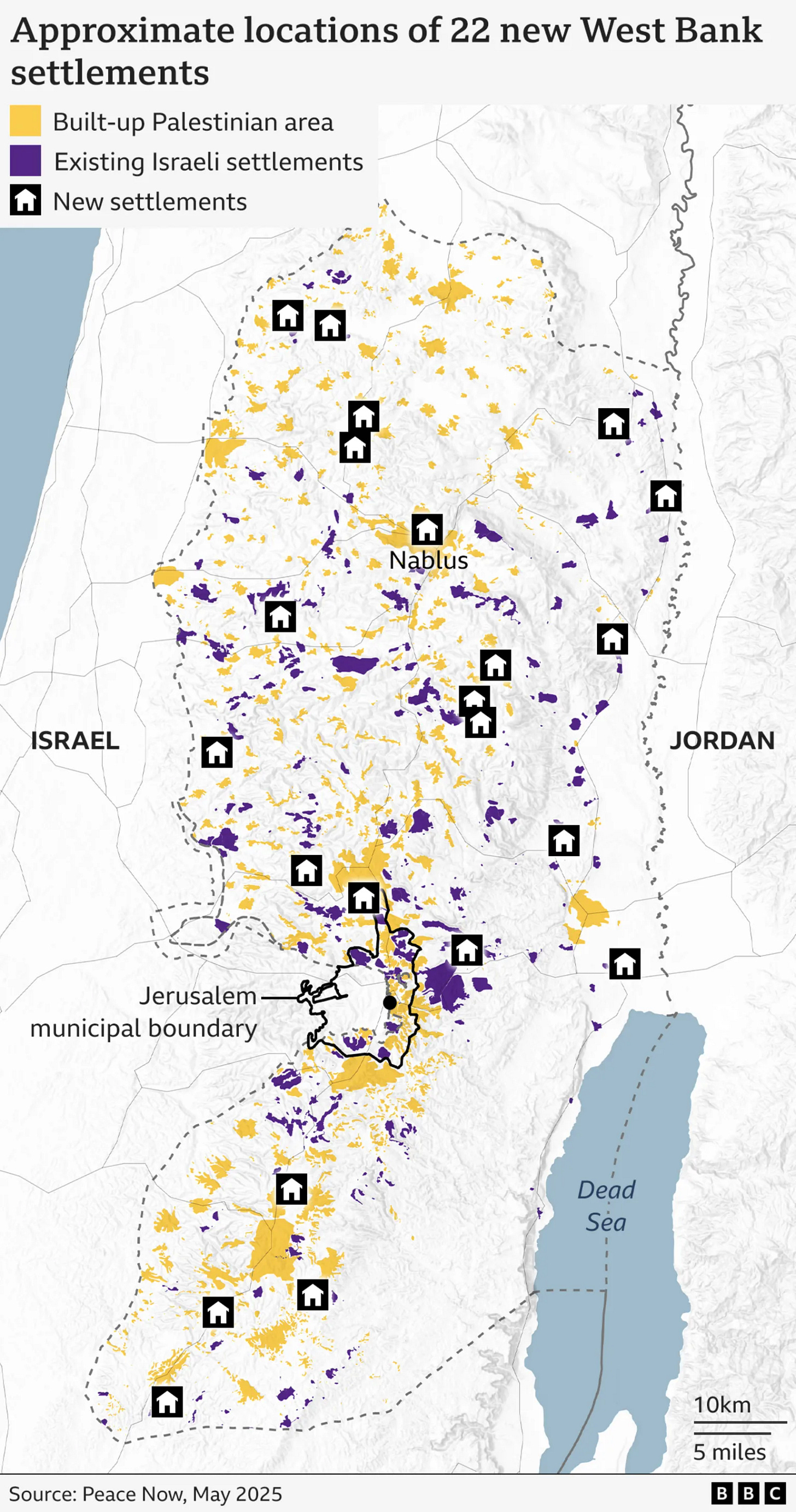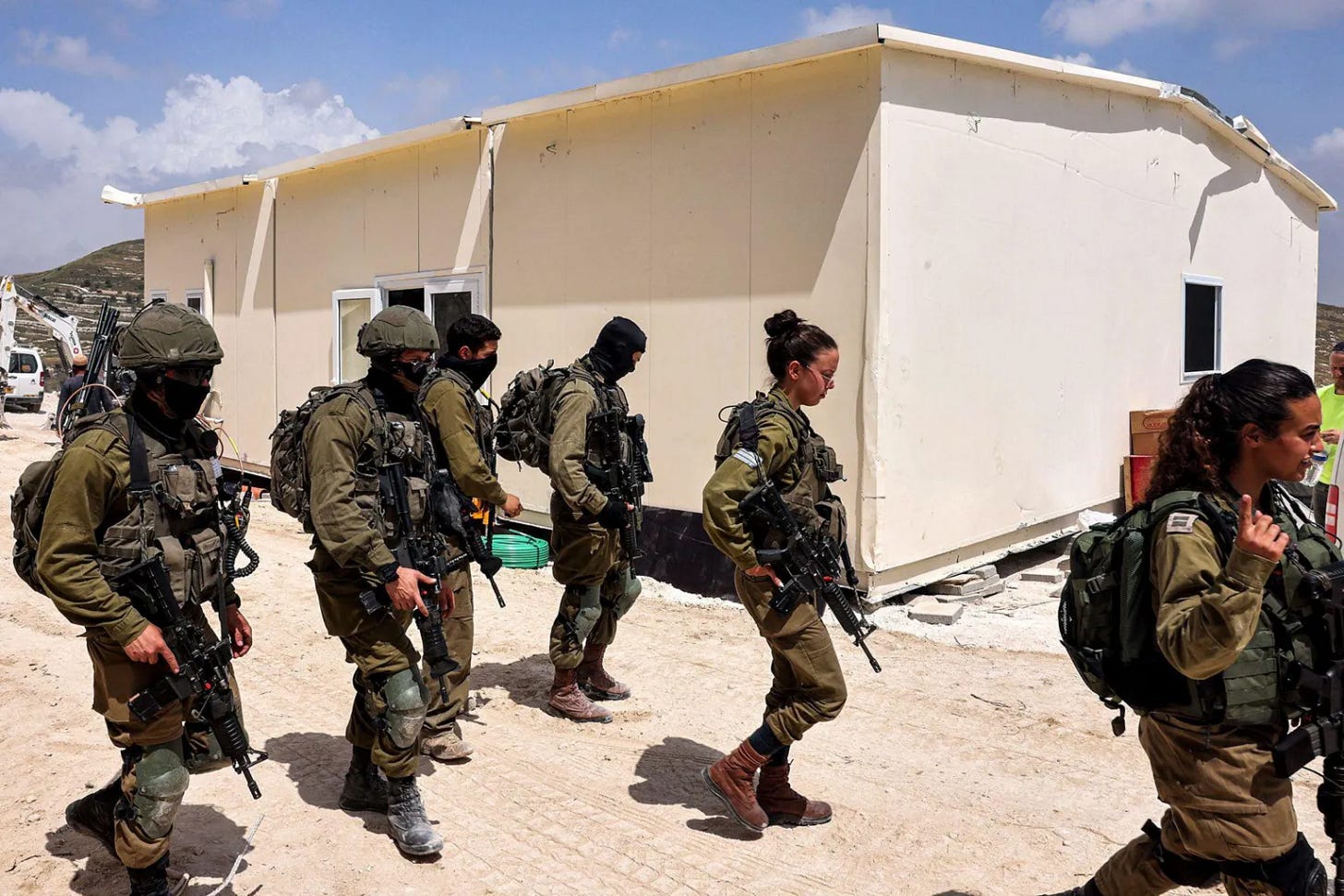The Slow Death of my Homeland: Watching Palestine Disappear One Settlement at a Time
50,000 New Housing Units, 943 Dead Palestinians, and the Administrative Annexation Hidden Behind Gaza's Headlines
There is a particular kind of grief that comes with watching your homeland transform before your eyes, not through natural disaster or the passage of time, but through the deliberate architecture of erasure. Each time I return to what remains of Palestine, I find myself standing in places that have been carved up, renamed, and reimagined by those who would prefer we never existed at all. The hills where my grandmother once collected za'atar now sprout prefabricated homes and security towers, the olive groves that bore witness to centuries of Palestinian life replaced by suburban streets with Hebrew names that echo nothing of the history they have buried.
This is not the clean, dramatic destruction that captures international headlines. This is something far more insidious and far more complete: the methodical transformation of a landscape and its people into something unrecognizable, a project so thorough and so patient that by the time the world notices, there is nothing left to save. While Gaza burns under the world's gaze, the West Bank dies quietly in bureaucratic meetings and planning committees, its death certificate signed not by bombs but by zoning laws and municipal budgets administered by men like Bezalel Smotrich, who has turned ethnic cleansing into an administrative science.
The latest announcement of 22 new settlements represents more than just another land grab; it is the culmination of what Smotrich calls his "Decisive Plan," a blueprint to annex the West Bank without triggering diplomatic blowback by making Jewish sovereignty an irreversible fact on the ground. These settlements are not random outposts scattered across stolen land but strategic nodes in a network designed to fragment Palestinian life so completely that the idea of a contiguous Palestinian state becomes not just impractical but literally unimaginable. When I see places like Homesh and Sa-Nur being resurrected from their 2005 evacuation, or new settlements like Mount Ebal rising near Nablus and Beit Horon North sprouting west of Ramallah, I understand that this is not about security or housing shortages but about the systematic erasure of Palestinian possibility.
I think of the children I know who have never seen their homeland whole, who navigate their daily lives through a maze of checkpoints and bypass roads that multiply like a virus across their landscape. They grow up in a world where their villages are surrounded by settlements that spring up overnight like concrete mushrooms, where the land their families have farmed for generations is suddenly declared a nature preserve under military orders or transformed into an archaeological site requiring daily military raids to "protect Jewish heritage." They watch Israeli children swim in pools built on land where their grandparents once grew olives, attend schools that their Palestinian neighbors cannot access, play on roads that Palestinian cars cannot use.
The bureaucrats who design this system understand something that too many observers miss: that occupation is not just about military control but about rewriting the very meaning of place through what Smotrich openly celebrates as changing "the system's DNA." When the Knesset advances bills to apply Israeli civil law to the West Bank, when they rename it officially as Judea and Samaria, when they initiate the first-ever land registration drive designed to reclassify any property without Israeli documentation as state land, they are not just stealing territory but stealing the possibility of Palestinian belonging. The new Settlement Administration that Smotrich created inside the Defense Ministry functions as a reverse coup, transferring control from military to civilian hands while maintaining the facade of occupation law, allowing ideologues to circumvent international legal constraints through bureaucratic sleight of hand.
The violence of this project reveals itself in numbers that accumulate like falling stones: over fifteen thousand new settlement housing units approved in just the first months of 2025, compared to less than ten thousand in all of 2024; another 1.9 billion dollars invested in West Bank roads despite settlers comprising only five percent of Israel's population; 105 million dollars funneled to settlements for "security" purposes while 80 million in funding to Arab municipalities was frozen; over 943 Palestinians killed in the West Bank since October 7th, more than the total over the previous fifteen years combined. These figures represent not just policy decisions but the mathematical precision of ethnic cleansing, each budget line and housing approval another nail in the coffin of Palestinian futurity.
The settlers who live in these colonies understand their role as foot soldiers in a project larger than themselves, which is why they build not just houses but entire universes designed to be separate from and superior to Palestinian life. They establish Regional Defense Battalions with army uniforms and M16s, using their new authority to raid Palestinian villages, destroy homes and infrastructure, uproot crops, and expel entire communities while the Israeli military stands down. They know that every outpost they establish beside a Palestinian village, every road they pave through Palestinian farmland, every swimming pool they fill in a landscape where Palestinian families ration water, is another step toward making Palestinian life impossible.
I watch Palestinian families adapt because they have no choice, finding new routes to work and school around the expanding geography of exclusion, learning to live with movement restrictions that cost Palestinian workers 373 million dollars in lost wages each month. They endure the daily reality of a system where settlers attack Palestinians an average of four times per day, where at least sixty communities have been expelled since October 7th, where children like the fourteen-year-old boy shot dead in Sebastia during a military operation to "protect Jewish heritage" pay with their lives for living on land that others have decided belongs elsewhere.
The international community speaks of two-state solutions and peace processes as if the ground beneath these concepts were not disappearing daily under the tracks of bulldozers and the signatures of planning committees. Diplomats draft statements about the illegality of settlements while those same settlements expand into cities with their own mayors and municipal services, while Israel moves toward approving fifty thousand new settlement housing units by the end of 2025, more than in the previous five years combined. French and Saudi officials plan conferences at the United Nations to revive momentum for Palestinian statehood while Smotrich openly declares 2025 "the year of sovereignty in Judea and Samaria" and works toward bringing an additional one million settlers into the West Bank.
What the architects of this project have perhaps not calculated is that Palestinian memory is not contained within the borders they draw or the registration systems they impose. The stones may be renamed and the maps redrawn, but the stories remain. The grandmother still teaches her grandchildren about the village that is now a settlement, the father still points to the hill where his father once grazed sheep, now crowned with an Israeli flag and surrounded by barbed wire. The landscape they are trying to erase is written not just in property deeds but in the bodies and memories of people who refuse to forget.
This is why each settlement is not just an act of theft but an act of defiance against the possibility that Palestinians might one day come home. But home is not just a place on a map; it is a relationship, a belonging, a way of being in the world that no amount of concrete and bureaucracy can fully destroy. Even as Smotrich builds his new legal departments staffed with lawyers tasked with managing settlement affairs, even as he creates bypass routes for funding illegal outposts without legal oversight, even as he transforms archaeological sites into biblical theme parks and sanctions cell phone carriers that fail to provide service across ninety-five percent of the West Bank, the homeland lives not just in the soil but in the stubborn persistence of those who refuse to be erased from it. And perhaps that is the one thing that all their planning and building and registering cannot account for: that a people's connection to their land is not something that can be legislated away, that the homeland endures in the very refusal to accept that this systematic destruction represents anything other than a temporary interruption in a much longer story of belonging.








What a beautiful piece, thank you for sharing!
My heart aches for you and your people... Please know that none of you are alone, especially when it feels hopeless... I know it may not be much, but you all are in my thoughts and prayers... Hugs.